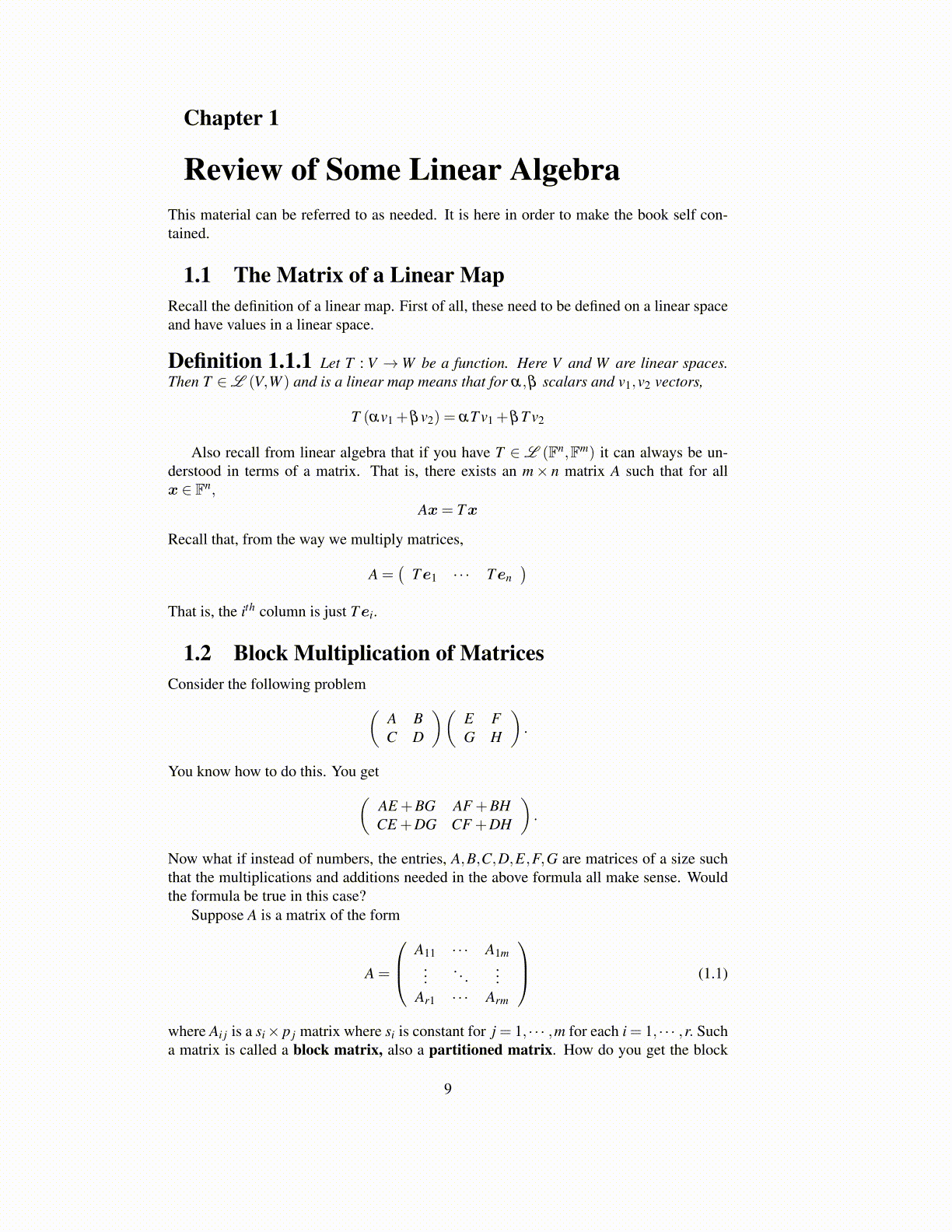
Chapter 1
Review of Some Linear AlgebraThis material can be referred to as needed. It is here in order to make the book self con-tained.
1.1 The Matrix of a Linear MapRecall the definition of a linear map. First of all, these need to be defined on a linear spaceand have values in a linear space.
Definition 1.1.1 Let T : V →W be a function. Here V and W are linear spaces.Then T ∈L (V,W ) and is a linear map means that for α,β scalars and v1,v2 vectors,
T (αv1 +βv2) = αT v1 +βT v2
Also recall from linear algebra that if you have T ∈L (Fn,Fm) it can always be un-derstood in terms of a matrix. That is, there exists an m× n matrix A such that for allx ∈ Fn,
Ax= Tx
Recall that, from the way we multiply matrices,
A =(
Te1 · · · Ten)
That is, the ith column is just Tei.
1.2 Block Multiplication of MatricesConsider the following problem(
A BC D
)(E FG H
).
You know how to do this. You get(AE +BG AF +BHCE +DG CF +DH
).
Now what if instead of numbers, the entries, A,B,C,D,E,F,G are matrices of a size suchthat the multiplications and additions needed in the above formula all make sense. Wouldthe formula be true in this case?
Suppose A is a matrix of the form
A =
A11 · · · A1m...
. . ....
Ar1 · · · Arm
(1.1)
where Ai j is a si× p j matrix where si is constant for j = 1, · · · ,m for each i = 1, · · · ,r. Sucha matrix is called a block matrix, also a partitioned matrix. How do you get the block
9